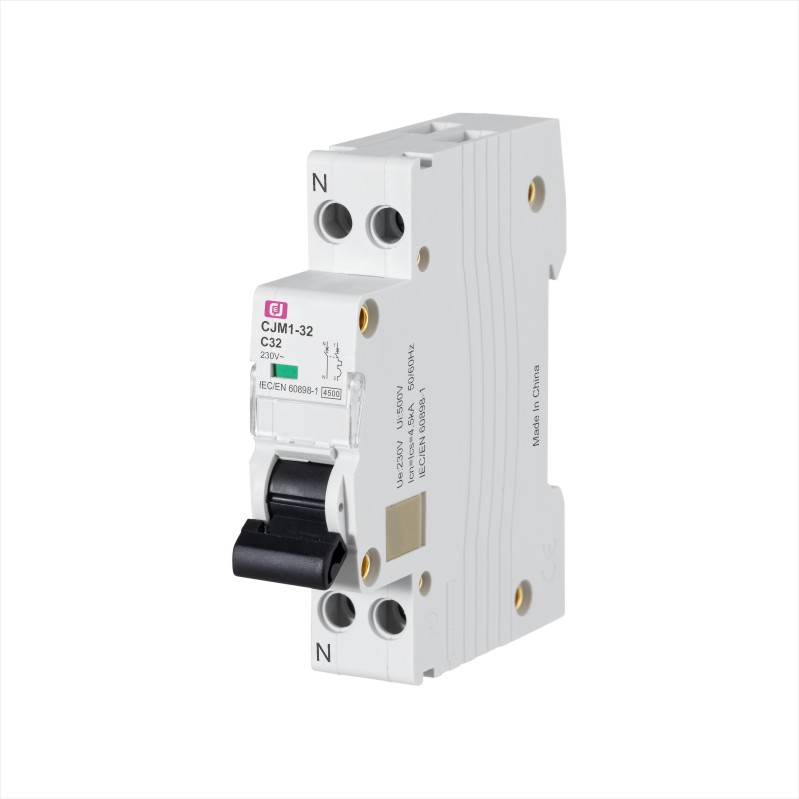Miniature circuit breakers (MCBs) are essential components in modern electrical systems, providing critical protection against overloads and short circuits. With electrical safety becoming increasingly important in residential and commercial environments, understanding the functions and benefits of MCBs is crucial for anyone involved in electrical installation or maintenance.
What is MCB?
A miniature circuit breaker (MCB) is an electromechanical device designed to automatically interrupt an electrical circuit when it detects a fault condition, such as an overload or short circuit. Unlike traditional fuses, which must be replaced after they blow, MCBs can be reset after tripping, making them a more convenient and efficient option for circuit protection.
How MCB works
Miniature circuit breakers (MCBs) operate primarily based on two mechanisms: thermal and magnetic. The thermal mechanism uses a bimetallic strip that bends in response to an overload condition, ultimately triggering a switch to open the circuit. The magnetic mechanism, on the other hand, responds to a short-circuit condition using an electromagnet that opens the switch almost instantly, preventing damage to the electrical system.
Types of MCBs
There are several types of MCBs, each designed for a specific application:
- Type B miniature circuit breakers: Suitable for residential applications, they can handle moderate inrush currents. Their tripping current is 3 to 5 times the rated current.
- Type C Miniature Circuit Breakers**: Type C miniature circuit breakers are ideal for commercial and industrial applications and are capable of withstanding higher inrush currents, making them ideal for equipment such as motors and transformers. They have a trip current of 5 to 10 times the rated current.
- D-Type MCB: These circuit breakers are designed for heavy-duty applications, such as large motors and transformers, and can handle inrush currents 10 to 20 times the rated current.
- K-Type and Z-Type MCB: These are specialized MCBs used for specific applications, such as protecting capacitive loads or sensitive electronic equipment.
Advantages of using MCB
- Safety: Miniature circuit breakers are safer than fuses. They can quickly disconnect the circuit in the event of a fault, reducing the risk of electrical fires and equipment damage.
- Convenience: Unlike fuses that need to be replaced after failure, MCBs can be reset with a simple switch, minimizing downtime and maintenance work.
- Precise: MCBs offer precise protection settings, providing customized solutions based on the specific needs of electrical systems.
- Compact Design: MCBs are typically smaller and more compact than traditional fuses, making them easier to install in tight spaces.
- Cost-Effective: While the initial investment in MCBs may be higher than fuses, their longevity and reduced maintenance costs make them a more economical choice in the long run.
Installation and Maintenance
Proper installation and maintenance of miniature circuit breakers (MCBs) are crucial to ensuring their effectiveness. Be sure to select the appropriate MCB type based on load requirements and install it in accordance with local electrical codes. Regular inspections should be performed to ensure that the MCB is functioning properly and shows no signs of wear or damage.
What is the difference between MCB and MCCB?
First, MCBs are primarily used for short-circuit and overload protection against low currents (typically under 100 amperes), while MCCBs are primarily used for short-circuit and overload protection against high currents (typically above 100 amperes) . This is due to the different structural designs and materials used by MCBs and MCCBs to accommodate different currents and loads. Second, MCBs typically use electronic components such as reeds and thermal relays for protection, while MCCBs use mechanical devices such as thermal-magnetic protectors.
In summary
Simply put, miniature circuit breakers (MCBs) play a vital role in protecting electrical systems from overloads and short circuits. Their ability to provide fast, reliable protection, coupled with convenience and cost-effectiveness, makes them an indispensable component in residential and commercial electrical installations. As technology continues to advance, the importance of MCBs in ensuring electrical safety will only grow, making it crucial for professionals and homeowners alike to understand their capabilities and benefits.

Post time: Sep-25-2025

